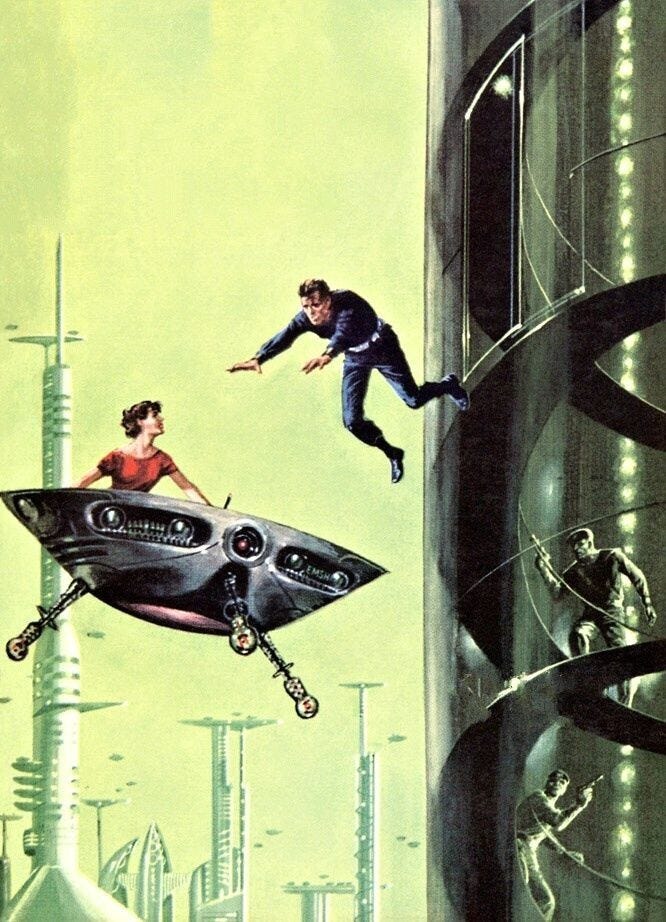I've been listening to podcasts discussing science fiction, and I was fascinated to learn that writing good science fiction creates pressure in the writer.
The pressure to be thought of as great is part of this bag, but there is also the pressure to get it right.
I’ve written before about how bringing a sense of self-importance to writing leads to Writer's Block, and the risk of crawling up your own ass.
By get it right I mean the need to be a seer of what’s next.
To try to predict the future.
Traditional science fiction-the earliest known works in this genre, golden, silver and bronze age science fiction, and modern sci-fi-has mainly concerned itself with the Future.
To try and anticipate what consequences a trend in the present will have years or decades up the line.
But in the late 20th and early 21st centuries, the Future has been with us for some time.
We just didn’t have full access to it. (People in many parts of the world still don’t have access to as much Future as the poorest person in the USA has.)
You could argue that for three-quarters of the 20th century we were getting drip feeds of the Future, then we were overwhelmed with Futuria from September 11, 2001 and onward.
And this pace of delivery has only picked up speed.
And because of this tradition can get in the way of the Future.
Tradition was at some point the New Thing that had to fight for acceptance, that then got fat and complacent, and now prevents new traditions from contributing to the gestalt.
The tradition of science fiction is the sword of Damocles to present day sci-fi writers.
The weight of tradition presses down on writers the belief that they need to constantly predict the Future.
The host of the SFF Audio podcast once described our present condition as if we are living in a Philip K. Dick novel.
We are exposed to the surreal and to oddness on a daily basis to the point that the word normal is losing meaning. Traditional institutions like the Oscars and the Grammy’s cannot give you the reassurance of the solid past that movie stars like John Wayne used to. The melding of tech, art are creating art forms and jobs that didn’t exist a little over fifteen years ago.
This is creating pockets of anxiety in people over what’s next. These invisible pockets are fields rich with storytelling possibilities.
Not to mention the ways in which we can apply social media platforms to explore traditional episodic storytelling.
In a recent interview I listened to Seth Godin describing two post-pandemic states of being: trying to control the present to reinvent the past,versus dancing with the present to reinvent the future.
He was talking about marketing, but marketing is creativity, and the most effective marketing is storytelling.
If you’re a writer, you’re a marketer.
So we can try and maintain a tradition going that is only concerned with keeping itself alive by fighting against change.
Or we can dance with this unstable present to see where there is an audience that we can make an impact on.
We already live in a world of science fiction.
Let’s explore the present.


